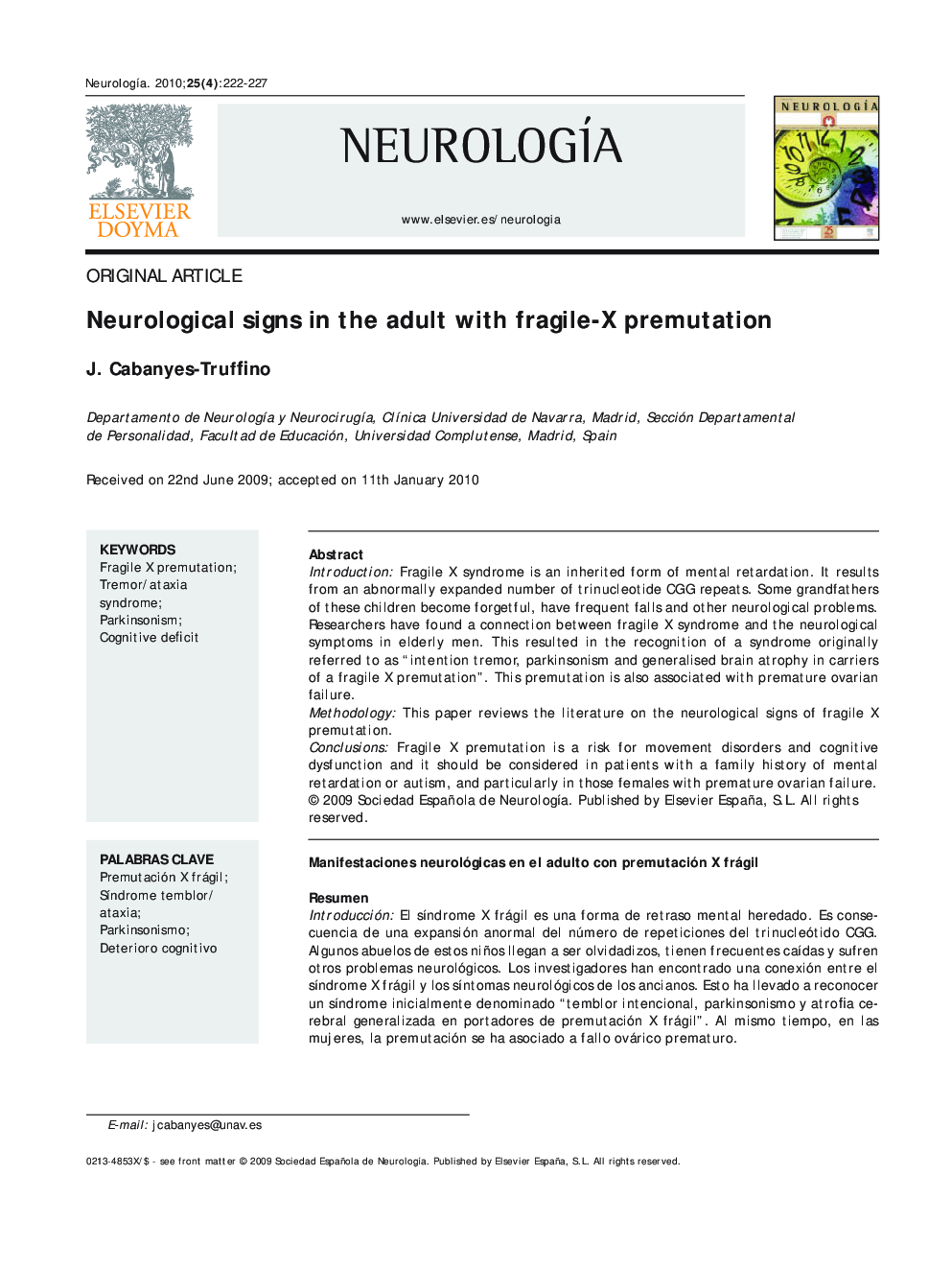| Article ID | Journal | Published Year | Pages | File Type |
|---|---|---|---|---|
| 3077858 | Neurología (English Edition) | 2010 | 6 Pages |
IntroductionFragile X syndrome is an inherited form of mental retardation. It results from an abnormally expanded number of trinucleotide CGG repeats. Some grandfathers of these children become forgetful, have frequent falls and other neurological problems. Researchers have found a connection between fragile X syndrome and the neurological symptoms in elderly men. This resulted in the recognition of a syndrome originally referred to as “intention tremor, parkinsonism and generalised brain atrophy in carriers of a fragile X premutation”. This premutation is also associated with premature ovarian failure.MethodologyThis paper reviews the literature on the neurological signs of fragile X premutation.ConclusionsFragile X premutation is a risk for movement disorders and cognitive dysfunction and it should be considered in patients with a family history of mental retardation or autism, and particularly in those females with premature ovarian failure.
ResumenIntroducciónEl síndrome X frágil es una forma de retraso mental heredado. Es consecuencia de una expansión anormal del número de repeticiones del trinucleótido CGG. Algunos abuelos de estos niños llegan a ser olvidadizos, tienen frecuentes caídas y sufren otros problemas neurológicos. Los investigadores han encontrado una conexión entre el síndrome X frágil y los síntomas neurológicos de los ancianos. Esto ha llevado a reconocer un síndrome inicialmente denominado “temblor intencional, parkinsonismo y atrofia cerebral generalizada en portadores de premutación X frágil”. Al mismo tiempo, en las mujeres, la premutación se ha asociado a fallo ovárico prematuro.MetodologíaEste artículo revisa la bibliografía acerca de las manifestaciones neurológicas de la premutación X frágil.ConclusionesLa premutación X frágil supone un riesgo de sufrir trastornos del movimiento y disfunciones cognitivas y debe considerarse en pacientes con una historia familiar de retraso mental o autismo y, particularmente, en mujeres con fallo ovárico prematuro.
